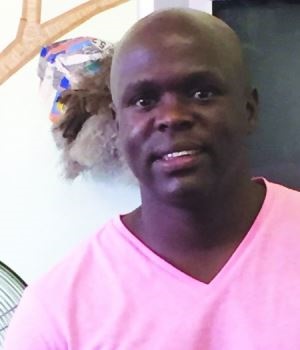
Having spent close to 11 years behind bars for robbery, Sihle Tshabalala has seen the best and the worst of what life has to offer.
The about-turn in Tshabalala’s life happened in 2006 when he was a maximum-security prisoner in the Brandvlei Correctional Centre near Worcester in the Western Cape.
“I met someone I had grown up with at Brandvlei before he was to be transferred to a medium-security facility. He said to me, ‘Sihle, I’ve been teaching here and I want someone to take over from me and fill my shoes. The only person who came to mind was you.’”
Reluctant and sceptical, Tshabalala agreed and started teaching English and Mathematics – subjects he had a natural aptitude for.
“I’ve always been a bright kid, having started school by age four and finishing matric by age 16.”
Where there’s hope
While in prison, Tshabalala joined the non-profit organisation (NPO) Group of Hope – a rehabilitation programme at Brandvlei through which inmates “adopt” vulnerable children from the surrounding areas, for whom they grow vegetables and make clothes.
“Group of Hope is the best rehabilitation programme a correctional facility could have,” says Tshabalala.
“It works and it’s much better than the social and psychological services government offers because it drives change from within the prison. It doesn’t help to impose programmes upon prisoners – at the end of the day it will be short-lived.”
When Tshabalala was released in 2013, he wanted to continue the work he had done through Group of Hope, so he approached Linda McCourt Scott (who co-founded the NPO Mothers for All) and entrepreneur Robyn Scott, who helped him to establish Brothers for All.
Bread on the table
In its two years’ existence, Brothers for All has done extensive HIV/Aids awareness and prevention work among male and female inmates, which has recently been extended to Tshabalala’s birthplace, Langa.
Pragmatic and solution-driven, Tshabalala wanted to do more to expand the work of Brothers for All by helping people from his community to put bread on the table.
“If you really want to be effective you should teach people skills that will enable them to earn a living.”
He realised one of the most sought-after skills in South Africa and abroad is coding. “There’s a huge deficit of developers – in Cape Town alone there are 23 000 unfilled programming positions.”
From Brothers for All sprung a course that teaches 170 youths from previously advantaged backgrounds the most essential programming languages, such as HTML, JavaScript and PHP.
“The coding classes started in October last year,” says Tshabalala, who went online and taught himself all the crucial coding programmes.
Ripple effect
The students in Tshabalala’s class are a mix of ex-offenders, high school dropouts and unemployed youth.
“In South Africa, thousands of children drop out of school in a year. Even matriculants and graduates are without jobs. What chance does a high school dropout have for a better life?”
The advantage of having coding skills, says Tshabalala, is that programmers don’t have to necessarily go out and seek employment.
“You can source jobs online, or even build your own website and showcase your skills for freelance jobs. Or you can do overseas work while you’re based in Cape Town.”
Tshabalala is particularly proud of the fact that the coding course has such far-reaching benefits in his community.
“I teach 170 students who all come from families of between six and 12 members. Through these students we can help at least 1 000 people, if there’s at least one breadwinner in the family.”
He singles out four students who have excelled in the programming course’s short existence – S’bu Gabuza, Pholesa Fatyela, Pretty Notshokovu and Nwabisa Masiki.
“They’re the type of students we want to breed here. Not one of them knew anything about coding and today they’re part of a R75 000 apprenticeship programme at Project CodeX, a full-time coding course co-founded by businessman and former FNB CEO Michael Jordaan.”
At CodeX developers do daily coding exercises with the guidance of industry professionals and mentors.
This is an excerpt from an article that originally appeared in the 14 May 2015 edition of finweek. Buy and download the magazine here.




 Publications
Publications
 Partners
Partners











